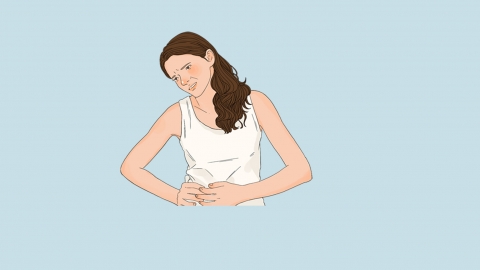What are the symptoms of benign ovarian tumors?
Benign ovarian tumors may present symptoms such as abdominal mass, bloating, menstrual irregularities, pressure-related symptoms, and abdominal pain. Most small tumors are asymptomatic; symptoms tend to appear gradually as the tumor grows. If an abdominal mass is detected or unusual bloating or menstrual disturbances occur, prompt gynecological evaluation is recommended.

1. Abdominal mass: This is a relatively typical symptom. Small tumors are usually detected via gynecological examination or ultrasound. As the tumor enlarges, patients may feel a firm, well-defined, mobile mass in the lower abdomen, which is typically not painful but may cause slight discomfort upon palpation.
2. Bloating and discomfort: As the tumor grows and compresses surrounding tissues or disrupts the intra-abdominal environment, patients may experience persistent bloating, which can worsen after eating. Some individuals may also feel mild abdominal heaviness, often mistaken for gastrointestinal disorders.
3. Menstrual abnormalities: If the tumor affects ovarian endocrine function, it may lead to menstrual cycle disturbances, such as prolonged periods, increased or decreased menstrual flow, or even non-menstrual vaginal bleeding in rare cases. These symptoms generally resolve gradually after tumor removal.
4. Pressure symptoms: A large tumor may compress the bladder, causing frequent urination or urgency; compression of the rectum can result in difficulty defecating or constipation; and ureteral compression may lead to dull pain in the lower back. The severity of these symptoms correlates directly with the tumor's size and location.
5. Abdominal pain: Sudden severe lower abdominal pain may occur if the tumor undergoes torsion (twisting) or rupture, often accompanied by nausea and vomiting. Pain may intensify intermittently. This is a medical emergency requiring immediate care to prevent complications due to delayed treatment.
In daily life, women should be reminded to undergo regular gynecological check-ups, promptly address any abnormalities, maintain regular sleep patterns and a light diet, avoid strenuous physical activity to reduce the risk of tumor torsion, follow medical advice for periodic monitoring of tumor size, and seek immediate medical attention if symptoms such as abdominal pain occur.




